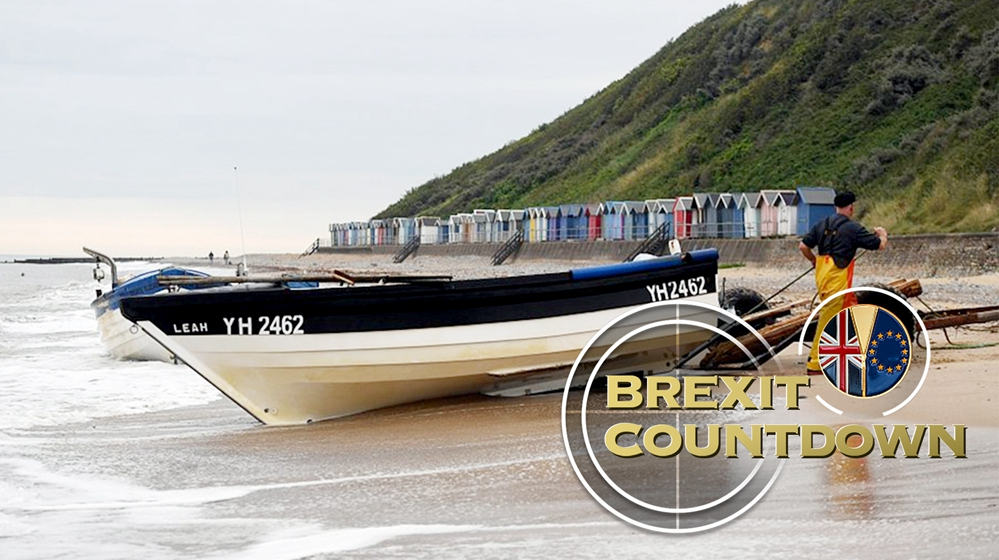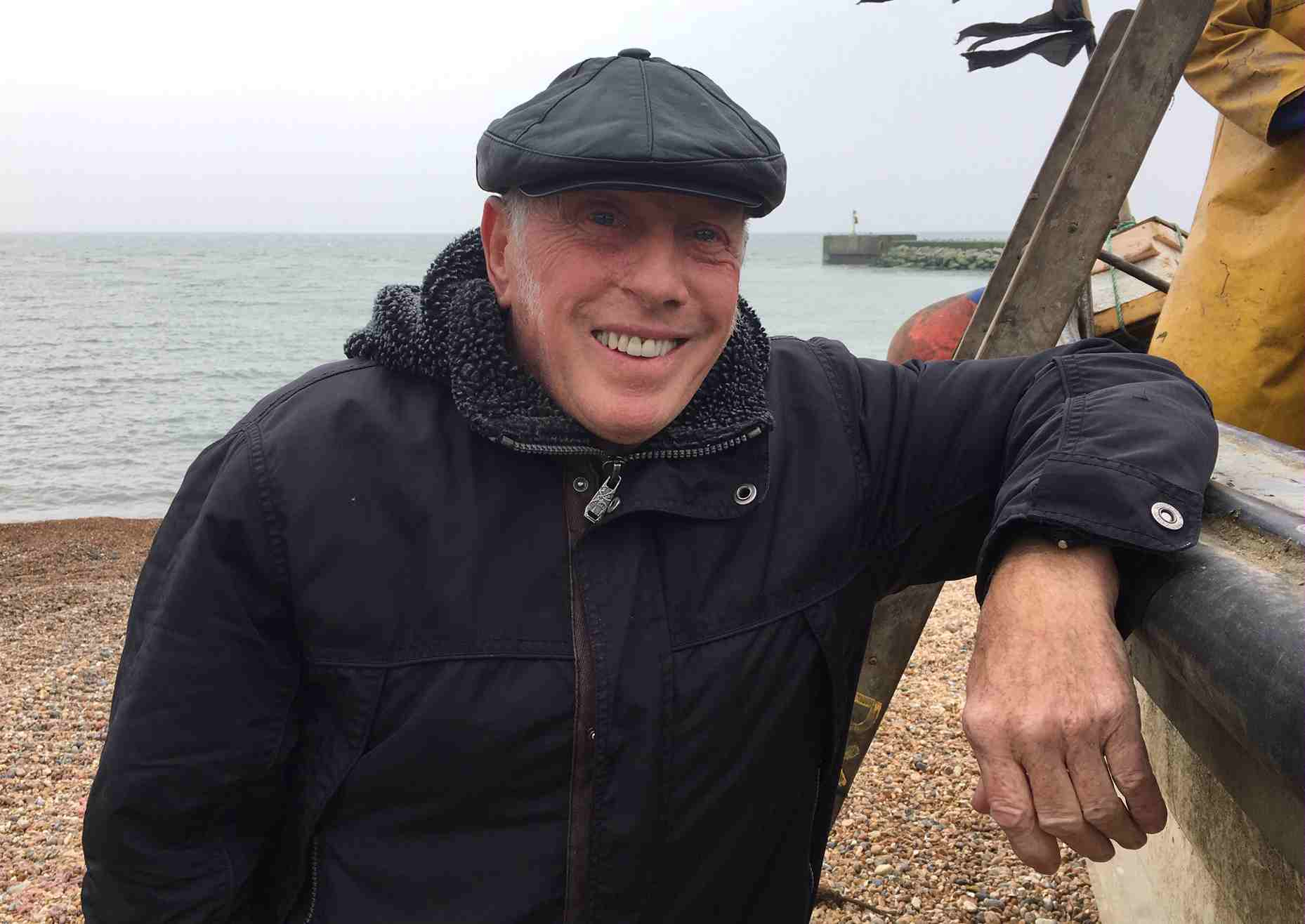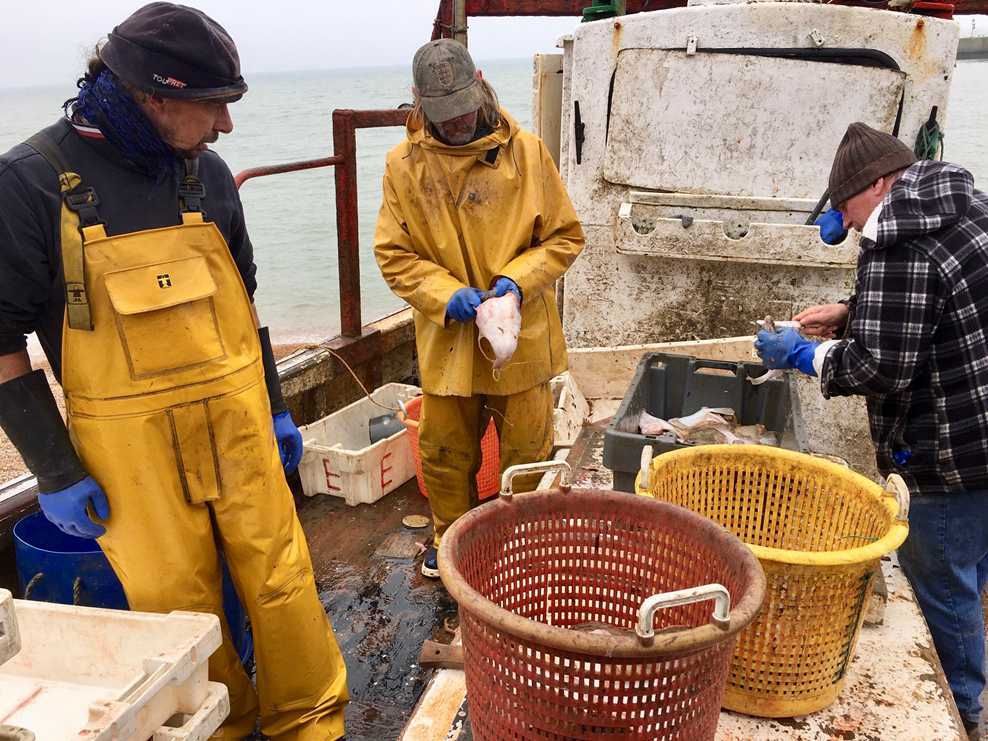
Economy
06:16, 04-Apr-2019
Give us our waters back, say British fishermen
Updated
10:32, 04-Apr-2019
Kitty Logan

The fishing boats make their way ashore with the morning high tide, with swarms of seagulls surrounding the fresh catch. They land at a pebbled beach in Hastings, on the south coast of England, where the boats are winched up slowly and painstakingly.
The crews prepare the fish - mostly plaice - for the nearby market, untangling wriggling fish from their nets and gutting it. It is hard graft, the men windswept and exhausted after a long night at sea.
The Hastings beach fishermen are a traditional fishing community, but in modern-day Britain the industry brings little reward.
Since the 2016 referendum on the EU, the Hastings fishermen have been hoping their lives were about to become better – but only if Britain leaves the EU without a deal. "To leave with no deal, that would be brilliant for us, because that means we can take control of our national waters again," says Paul Joy, chairman of the Hastings Fishermen's Protection Society.

Paul Joy, a fisherman in Hastings, the UK / CGTN Photo
Paul Joy, a fisherman in Hastings, the UK / CGTN Photo
"Eighty-two percent of all Europe's fish was formerly British. And we got eight percent back in monetary value. So, we gave it all away. And now we want our fish back and we want our territorial waters back."
Fishermen are frustrated by EU limitations on how far out they are permitted to fish, which they say favors their French rivals across the English Channel.
"We can't fish into 12 miles of the French shore," says Paul, "they can fish into six miles of ours. Is that fair? It's not. And it's destroyed the fishing industry in this country."
The EU also introduced quotas to protect fish stocks, which British fishermen have to adhere to. If they catch too much, they risk a fine or are forced to throw dead fish back into the sea.
But Hastings fishermen say their traditional methods do support sustainable fishing and they do not need EU rules to protect stocks.

Hastings fishermen are cleaning fish. / CGTN Photo
Hastings fishermen are cleaning fish. / CGTN Photo
"Our family has fished here for a thousand years and fished sustainably and we had brilliant fish stocks," says Paul, "up until we went into Europe. Then it was plundered into extinction nearly. It's come back, but even though fish stocks have come back we don't have the right to fish in our own waters. We only catch a minute proportion of the fish we should be catching."
Fisherman Shane Ball helps carry tray loads of fish up the steep beach to the market. It is a good catch today. But these small boat fishermen are fighting the odds to survive. They can only fish in these basic wooden boats in reasonably fair weather, putting them under pressure to eke out a living day when it is safe enough to go to sea.
Shane is hoping that a favorable Brexit outcome will mean his workload becomes more rewarding. "I'm just hoping to get our waters back at the moment. That's the main thing for us. That's why I voted to leave. To try to get our waters back."
But what fishermen do not want is Theresa May's deal, which has so far failed to be passed through Parliament. That could allow fishermen from other countries into UK territorial waters.
Politicians are still debating what form Brexit might finally take and a ‘no-deal' Brexit is a one potential outcome. But the government is doing all it can to prevent it and MPs have refused to back that scenario.
The Brexit endgame remains unknown, but for fishermen, it might not be the solution they were hoping for.

SITEMAP
Copyright © 2018 CGTN. Beijing ICP prepared NO.16065310-3
Copyright © 2018 CGTN. Beijing ICP prepared NO.16065310-3